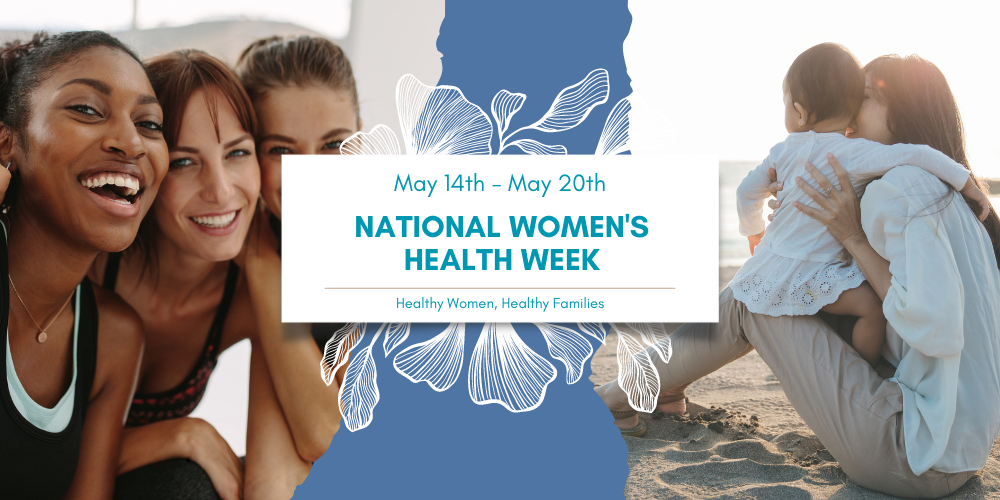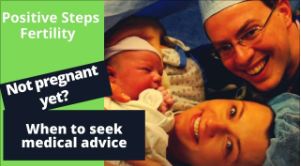This week is National Women’s Health Week, a time to raise awareness and take action for the health and well-being of women across the country. Other health topics often overshadow fertility, yet it’s central to many women’s lives. Whether you’re currently trying to conceive or planning for the future, understanding and taking care of your fertility health is crucial.
Fertility, simply put, is a person’s ability to conceive children. It depends on many factors, such as age, genetics, lifestyle, environment, and medical conditions. Fertility can change over time and vary from person to person. Some women may have difficulty conceiving or carrying a pregnancy to term, while others may have no problems at all. Some women may choose to delay or avoid pregnancy for personal or professional reasons, while others may desire to have a large family.
Whatever your situation or preference, it is important to be informed and proactive about your fertility. Knowing your fertility status and options can help you make informed decisions about your reproductive health and plan for your future. It can also help you prevent or treat any potential problems that may affect your fertility, such as infections, hormonal imbalances, endometriosis, polycystic ovary syndrome (PCOS), uterine fibroids, or cancer.
The relationship between a woman’s general health and her fertility is profound. A variety of factors can impact a woman’s reproductive potential, many of which are directly tied to her overall health and lifestyle.
Here are some ways in which general health can influence women’s health and fertility:
- Weight and Nutritional Status: Being significantly over or underweight can interfere with regular menstrual cycles, thereby affecting fertility. Additionally, deficiencies or excesses of certain nutrients can also have detrimental effects on reproductive health.
- Stress Levels: Chronic stress can cause hormonal imbalances that may disrupt ovulation and the menstrual cycle.
- Sleep Patterns: Inadequate sleep can lead to hormonal disturbances, including those of reproductive hormones, affecting fertility.
- Existing Medical Conditions: Conditions such as PCOS, thyroid disorders, or diabetes, if not well-managed, can lead to fertility issues.
- Lifestyle Factors: Smoking, excessive alcohol use, and exposure to certain environmental toxins can negatively impact egg quality and fertility.
At Positive Steps Fertility, we’re here to guide and support you on this journey. As we close out National Women’s Health Week, here are some health tips that can impact your reproductive potential.
- Diet: Proper nutrition is crucial to your fertility health. Aim for a balanced diet rich in fruits, vegetables, lean proteins, and whole grains. Certain nutrients like folic acid, iron, zinc, and vitamins D and E are particularly beneficial for fertility.
- Exercise: Regular physical activity helps maintain a healthy weight and reduce stress—both important factors for fertility. However, moderation is key as excessive high-intensity exercise may impact your menstrual cycle.
- Sleep: Good quality sleep is essential for hormonal balance and stress reduction, both critical for optimal fertility.
- Stress Management: Chronic stress can affect your hormonal balance and potentially disrupt your menstrual cycle. Incorporate stress management techniques like meditation, yoga, or deep-breathing exercises into your routine.
Fertility is a vital part of women’s overall health that deserves attention and care. By celebrating National Women’s Health Week, we hope to empower women to become more proactive on their fertility journey. Whether you want to have children now or later or not at all, you deserve to have the information and support you need to make the best choices for yourself and your family.
Wondering what the next step is on your fertility journey? The best way to determine your needs is to reach out to a fertility specialist who can directly assess your specific circumstances. Don’t suffer in silence. Reach out today, and find peace in getting the answers you deserve.
National Women’s Health Week is an excellent time to reflect on your health journey and how fertility fits into the picture. We invite you to join us at Positive Steps Fertility in celebrating this crucial week for women’s health.




